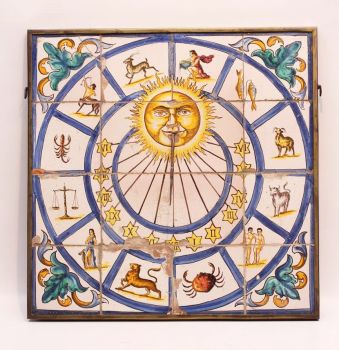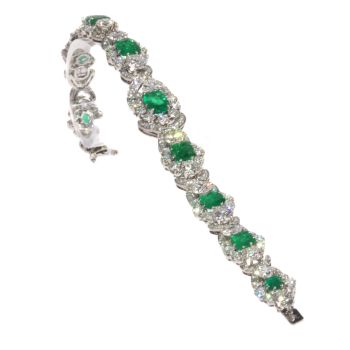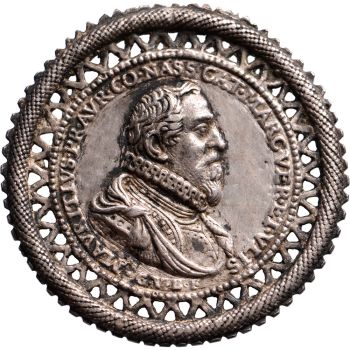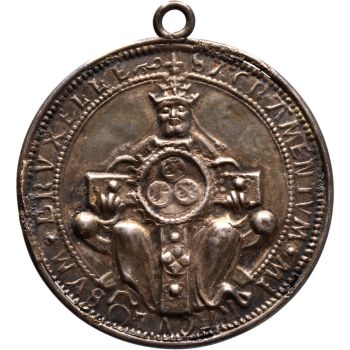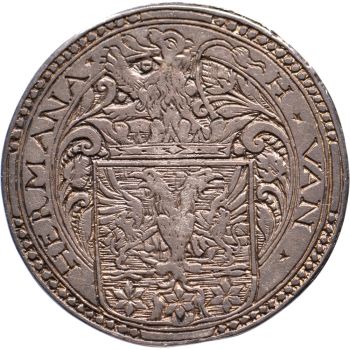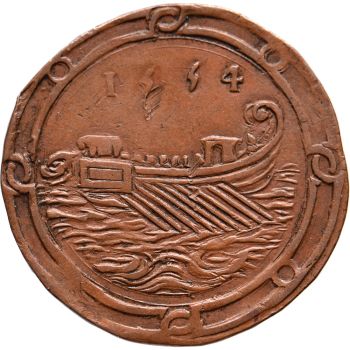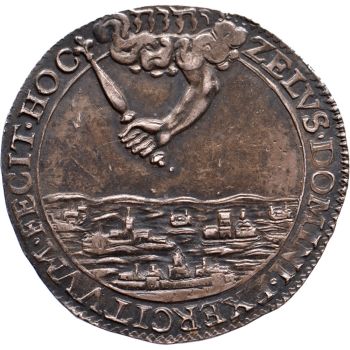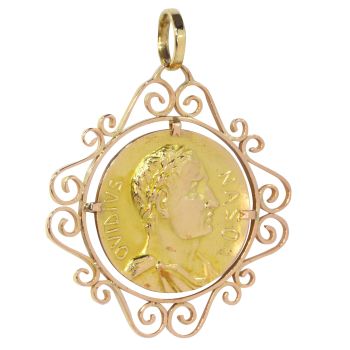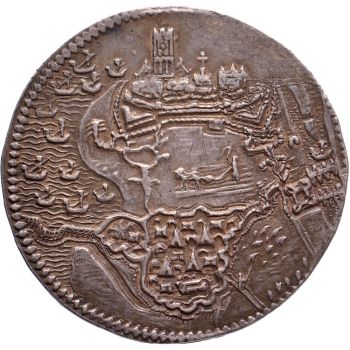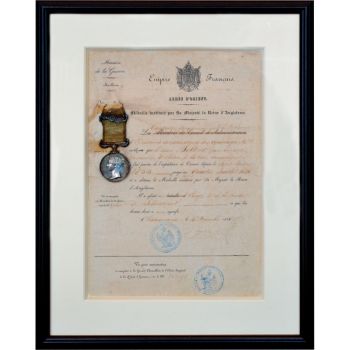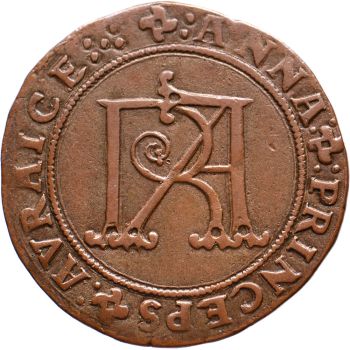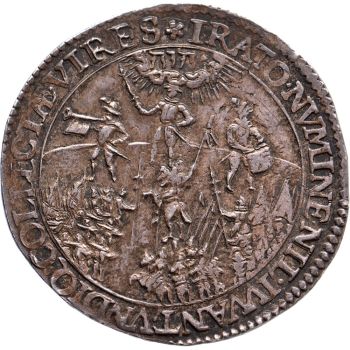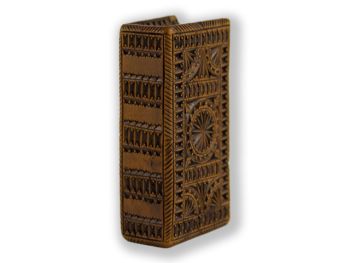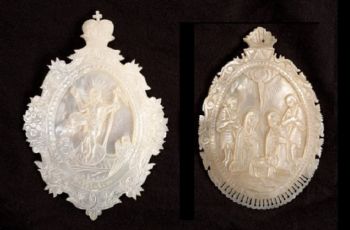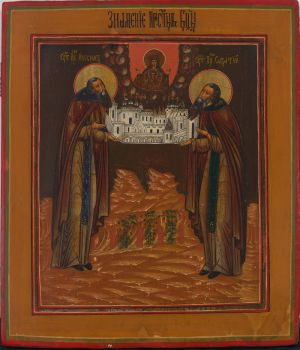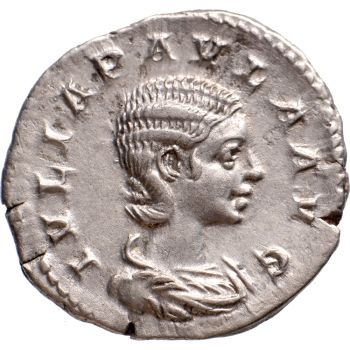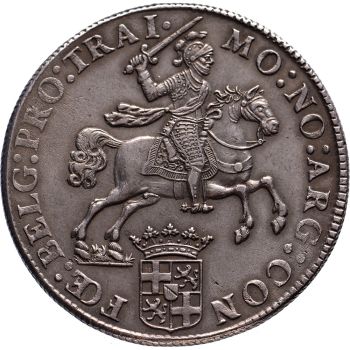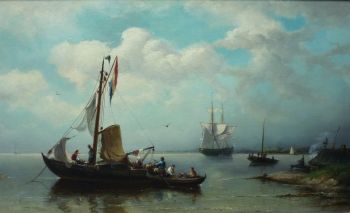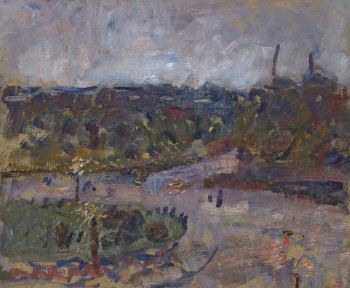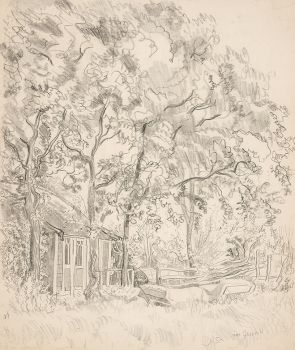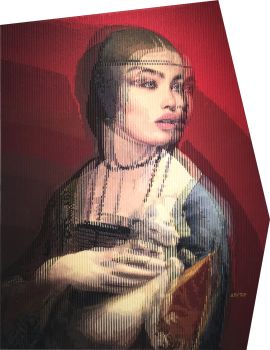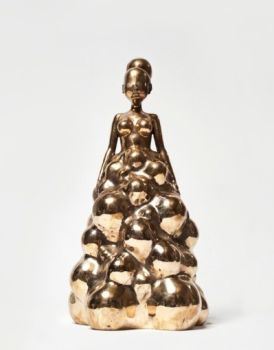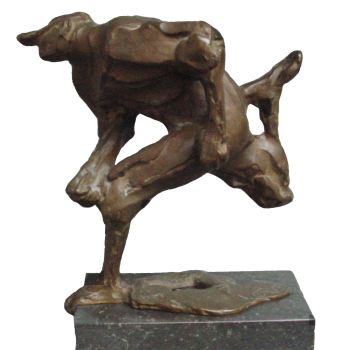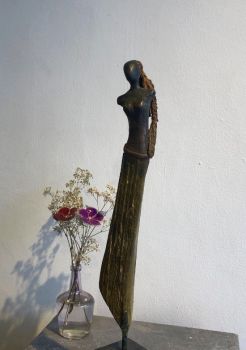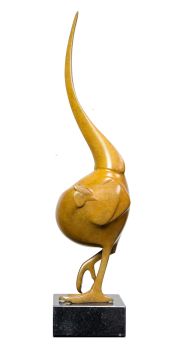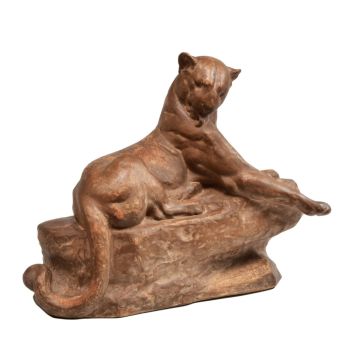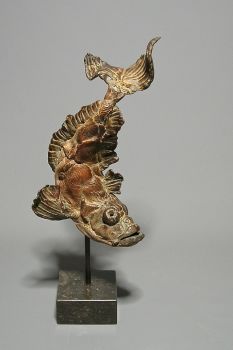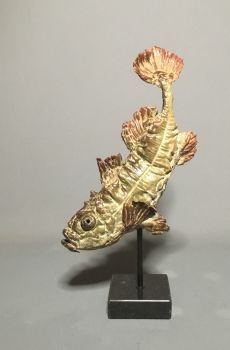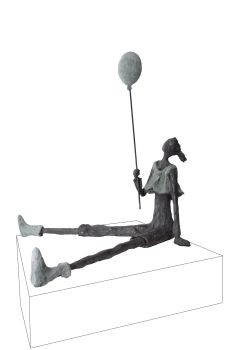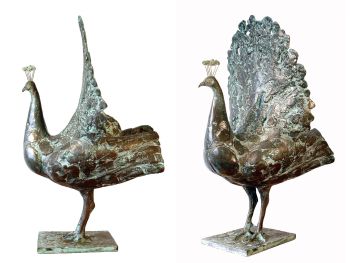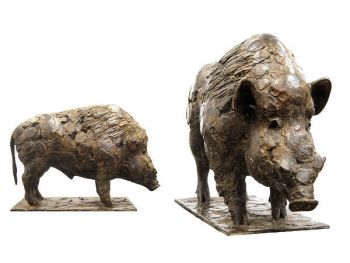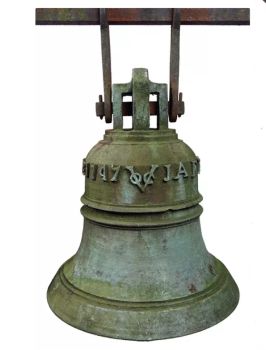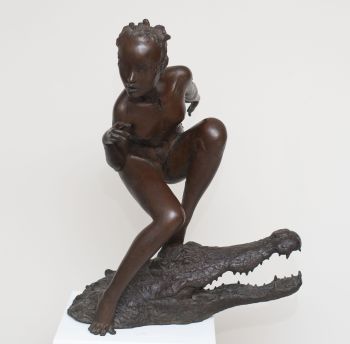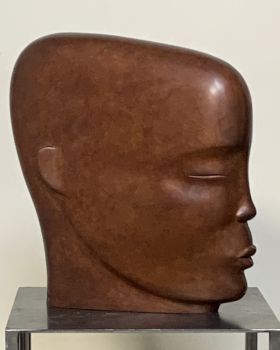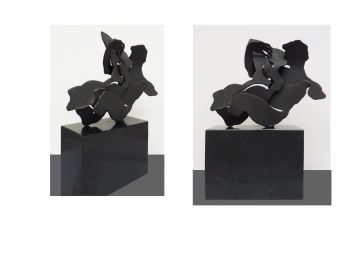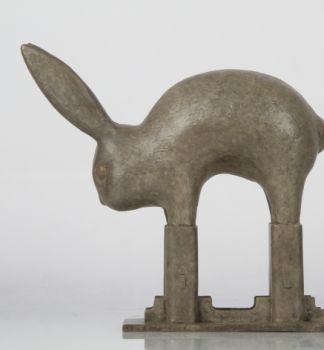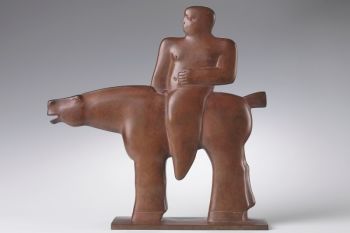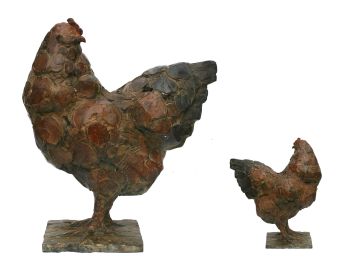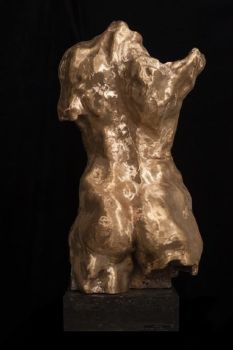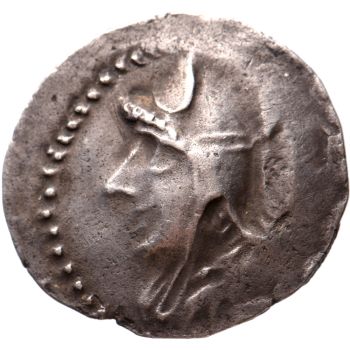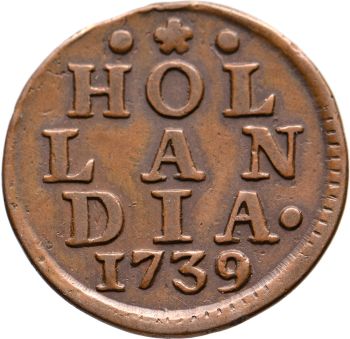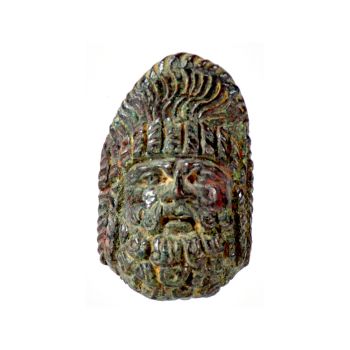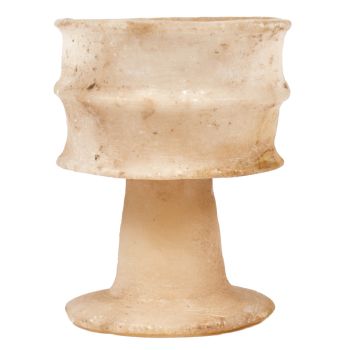Expedition to Brazil and capture of St. Thomas by admiral Van der Does. Betts 20 1599
Artista Sconosciuto
Jongeling Numismatics & Ancient Art
- A proposito di opere d'arteObverse: EN ALTERA QVÆ VEHAT ARGO, the ship the Argo seen from the side, a standing soldier on the prow, the large sail with the name of Jehovah, the golden fleece hanging from the prow, S.C. underneath
Keerzijde: SIC NESCIA CEDERE FATA MDIC, bird’s-eye view of Bommeler- and Tielerwaard, two border posts in the shape of a human with the Hebrew text for Jehovah between them
RARE
The golden fleece on the prow refers to the myth of Jason and the golden fleece, who performed glorious feats with his argonauts. The caption, an adapted quote from Virgil, also refers to this: “alter erit tum Tiphys et altera quae vehat Argo delectos heroas” (“There will be another Tiphys and another Argo, which shall carry chosen heroes”).
Pieter van der Does was a Dutch admiral (1562-1599) who fought against the Spanish during the Eighty Years’ War (1568-1648). In 1599 he left on an expedition to Brazil with 66 ships, but not before entering into a confrontation with the Spanish to maintain Dutch hegemony at sea. He sailed towards the Spanish-Portuguese coast to set up a blockade there. This failed. He then sailed to Gran Canaria and took Las Palmas. However, he did not hold out here either and continued his journey to South America, where he stocked up on large quantities of wood (mahogany) and sugar in Brazil. He sailed back via the Cape Verde islands and also conquered the island of St. Thomas (São Tomé) on the African west coast. From this island they took 100 cannons, many chests of sugar, ivory and linen. Shortly afterwards, however, Van der Does, together with 1,000 crew members, became seriously ill and died within 15 days. This medal was issued after his death to commemorate his exploits.
Weight: 6.48 g
Diameter: AE 30.0 mm
Grade: Extremely Fine
Reference: vL. 532.2; Dugn. 3472; Betts 20 - A proposito di opere artista
Può succedere che un artista o un creatore sia sconosciuto.
Alcune opere non sono determinate da chi sono state realizzate o sono state realizzate da (un gruppo di) artigiani. Esempi sono statue dell'antichità, mobili, specchi o firme non chiare o leggibili ma anche alcune opere non sono affatto firmate.
Inoltre puoi trovare la seguente descrizione:
•"Attribuito a …." A loro avviso probabilmente opera dell'artista, almeno in parte
•“Studio di ….” o “Officina di” A loro avviso un'opera eseguita nello studio o nella bottega dell'artista, eventualmente sotto la sua supervisione
•“Cerchio di…” A loro avviso un'opera del periodo dell'artista che mostra la sua influenza, strettamente legata all'artista ma non necessariamente al suo allievo
•"Stile di..." o "Seguace di..." A loro avviso un'opera eseguita nello stile dell'artista ma non necessariamente da un allievo; può essere contemporaneo o quasi contemporaneo
•“Modalità di…” A loro avviso un'opera nello stile dell'artista ma di epoca successiva
•"Dopo …." A loro avviso una copia (di qualsiasi data) di un'opera dell'artista
•“Firmato…”, “Datato…” o “Iscritto” A loro avviso l'opera è stata firmata/datata/inscritta dall'artista. L'aggiunta di un punto interrogativo indica un elemento di dubbio
•"Con firma....", "Con data...", "Con iscrizione..." o “Riporta firma/data/iscrizione” a loro avviso la firma/data/iscrizione è stata aggiunta da qualcuno diverso dall'artista
Sei interessato ad acquistare questa opera d'arte?
Artwork details
Related artworks
- 1 - 4 / 12
Artista Sconosciuto
N.d. Murder of Johan and Cornelis de Witt in The Hague1672
€ 2.250Jongeling Numismatics & Ancient Art
 A cura di
A cura diDanny Bree
Rene Rietmeyer
"USA South Florida January 2006"2006
Prezzo su richiestaEuropean Cultural Centre Collection
1 - 4 / 24Willem Maris
Polderlandschap met koeien en molens op warme zomerdag1880 - 1890
Prezzo su richiestaPrivate Collection Classic Arts
Artista Sconosciuto
N.d. Murder of Johan and Cornelis de Witt in The Hague1672
€ 2.250Jongeling Numismatics & Ancient Art
 A cura di
A cura diDanny Bree
Gyrinus
Verre gravé pointillé avec putti1764 - 1766
Prezzo su richiestaPeter Korf de Gidts - Antiquairs
1 - 4 / 24Artista Sconosciuto
The bell of the VOC fortress in Jaffna, Sri Lanka1747
Prezzo su richiestaZebregs & Röell - Fine Art - Antiques
 A cura di
A cura diDanny Bree
1 - 4 / 24Artista Sconosciuto
N.d. Murder of Johan and Cornelis de Witt in The Hague1672
€ 2.250Jongeling Numismatics & Ancient Art
 A cura di
A cura diDanny Bree
1 - 4 / 12






